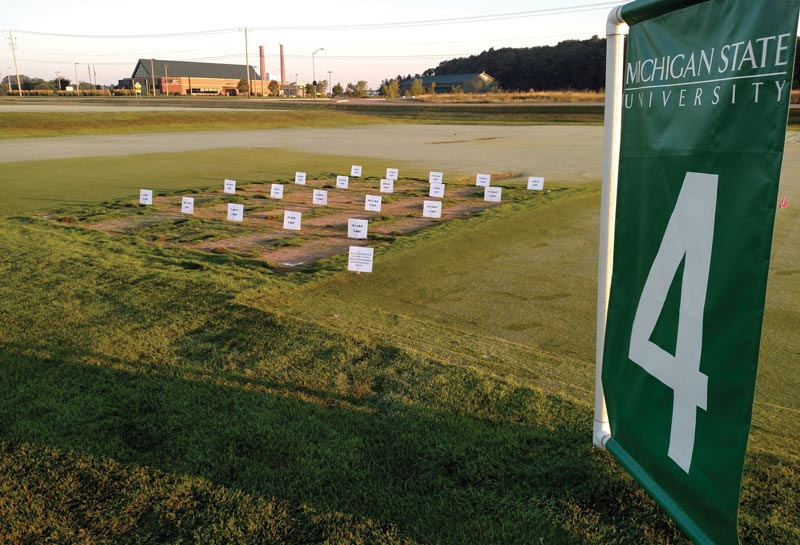
Photo by Jacob Bravo
Sterilizing the soil is a necessary first step in golf course renovations, because the planted seed must be the only seed that will germinate. Without a soil sterilant, any existing weed seeds may become viable and germinate, competing with the newly planted seeds.
Until recently, methyl bromide was the most commonly used sterilant, but it has been removed from the market. One alternative to methyl bromide is dazomet (Basamid, AMVAC). We focused on the ability of dazomet to inhibit germination and emergence of annual bluegrass (Poa annua), which has an abundant soil seed bank.
A primary objective of our research was to develop a procedure that would not require covering large areas (such as golf course fairways) that were being treated with dazomet. Research was completed on fairway-height creeping bentgrass/annual bluegrass mixed stands in East Lansing, Mich., where multiple rates of dazomet were used in variable intervals followed by seeding of a new creeping bentgrass stand into the treated area.
Our results suggest that, to have significant control, turf growers may need to apply dazomet at a higher rate than the current label permits. (Note: All users should follow label instructions carefully.) There were no significant negative effects from seeding immediately after treatment, because the current label allows for re-entry into the treated area.
— Jacob S. Bravo; John N. Rogers III, Ph.D.; and James R. Crum, Michigan State University, East Lansing, Mich.; and Charles Silcox, Ph.D., AMVAC Chemical Corp., Newport Beach, Calif.
Teresa Carson is GCM’s science editor.